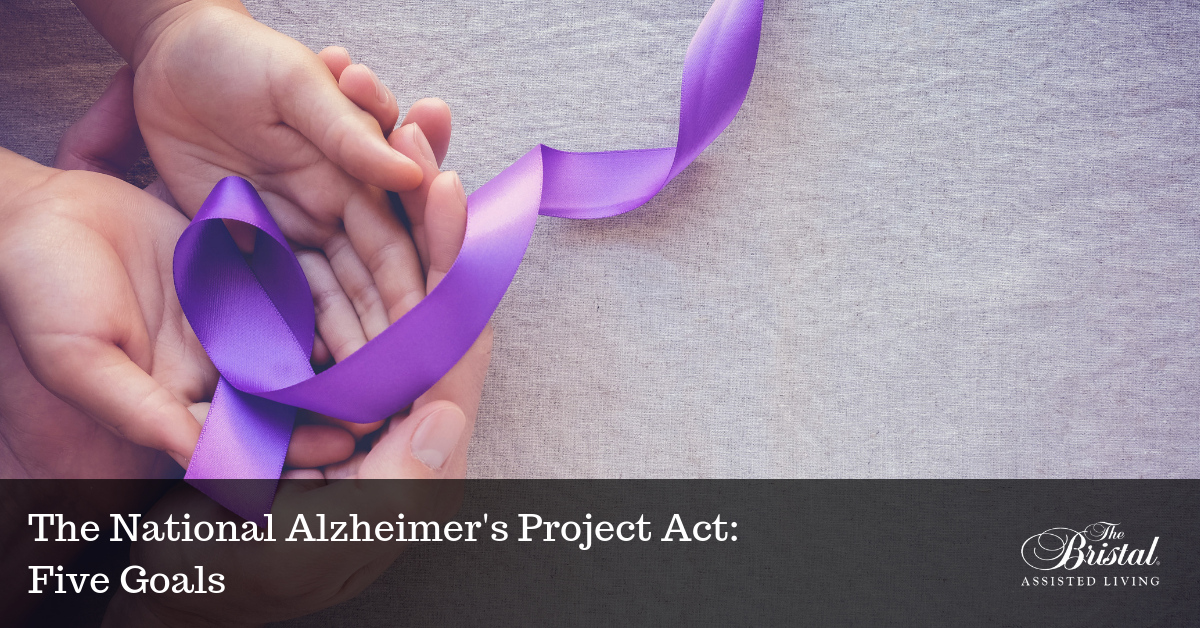This brewing “silver tsunami” is expected to sweep away the memories and wellness of more than 7.1 million Americans by 2025. Unless ADRD can be effectively treated or prevented, by 2050, an estimated 13.8 million people age 65 and older may develop ADRD.
Given the current and predicted impacts of ADRD on medical and social costs, families and caregivers, and the basic human rights of individuals with the disease, a strategic plan to address this public health crisis is needed.
The National Alzheimer’s Project Act (NAPA), passed unanimously by Congress in December 2010, and signed into law (Public Law 111-375), by President Obama in January 2011, is expected to provide the strategic framework to address the rapidly escalating ADRD disease crisis and the coordination of ADRD disease prevention and treatment efforts across the federal government.
In May 2012 this framework, known as the National Alzheimer’s Plan, was released.
The plan is guided by three principles:
1. Optimize the existing resources and improve & coordinate ongoing activities
2. Support public-private partnerships
3. Transform the way we approach Alzheimer’s disease
Five goals form the foundation of the plan:
- Prevent and Effectively Treat Alzheimer’s Disease by 2025
- Optimize Care Quality and Efficiency
- Expand Supports for People with Alzheimer’s Disease and Their Families
- Enhance Public Awareness and Engagement
- Track Progress and Drive Improvement
What does the law require?
- An annually updated national plan submitted to Congress on how to overcome Alzheimer’s.
- Annual recommendations for priority actions to both improve health outcomes for individuals with Alzheimer’s and lower costs to families and government programs.
- An annual evaluation of all federally funded efforts in Alzheimer’s research, care and services – along with their outcomes.
- The creation of an Advisory Council on Alzheimer’s Research, Care, and Services.
What will the Advisory Council on Research, Care, and Services do?
- Coordinate federal agencies conducting Alzheimer’s-related care, services and research.
- Evaluation and strategic planning process conducted by federal and non-federal participants.
Federal Representation:
- Administration on Aging
- Agency of Healthcare Research and Quality
- Centers for Disease Control and Prevention
- Centers for Medicare and Medicaid Services
- Department of Veterans Affairs
- Food and Drug Administration
- Indian Health Service
- National Institutes of Health
- National Science Foundation
- The Surgeon General
Non-Federal Representation (2 each):
- ADRD Caregivers
- Alzheimer’s Patient Advocates
- Health Care Providers
- Researchers with Alzheimer’s Experience
- State Health Departments
- Voluntary Health Associations
- HHS is soliciting nominations for someone with a diagnosis of Alzheimer’s disease or a related dementia (deadline for submission is June 14, 2013) Helen.Lamont@hhs.gov
The next Advisory Council meeting is scheduled for July 19, 2013. Advisory Council meetings are webcast live and public attendance is permitted. Time is allocated on the agenda to hear public comments. Formal written comments may also be submitted for the record.
For additional information please go to: The National Alzheimer’s Project Act
Listserv is also available to receive notices of actions and Council meetings. To join, send an email to LISTSERV@LIST.NIH.GOV and place in the body of the message: “subscribe NAPA-L [your name]



